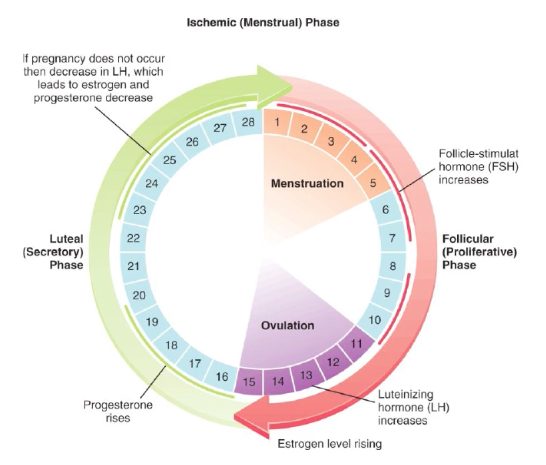
You’ll discover:
• What perimenopause actually is and why it’s more than just a hormone issue
• How your brain, nervous system, and metabolism change during this transition
• The hormonal patterns that drive symptoms like night sweats and sleep disruption
• Why cyclical hormone replacement therapy helps restore rhythm and balance
• How concierge doctors approach women’s hormone replacement differently (even from your OB/GYN)
Every woman knows about perimenopause, at least the symptoms anyways: You start waking up around three in the morning and can’t go back to sleep, notice weight gain that doesn’t make sense despite eating “nothing”, or feeling waves of anxiety, flushing, or irritability that come out of nowhere. You’re not broken or losing your mind, and you may even be doing lifestyle habits just fine. You’re in a natural transition called perimenopause.
Perimenopause affects nearly every major system in your body. Hormones are the headline, but the story includes your brain, metabolism, stress response, and even how your body handles temperature and sleep. This phase is the bridge between your reproductive years and menopause, and understanding what’s happening physiologically is the first step to getting control back.
What’s Changing in Your Body
When people think about perimenopause, they usually think estrogen drops and that’s it. But what actually happens is more complex.
Your brain starts recalibrating how it responds to hormonal signals. Estrogen and progesterone both affect neurotransmitters like serotonin, dopamine, and GABA, which help regulate mood, focus, and sleep. As these hormones fluctuate, those neurotransmitters lose stability. That’s why you might feel emotionally inconsistent, anxious, or unable to shut your mind off at night.
Your metabolism begins to slow because estrogen plays a role in how your body uses glucose and stores fat. Insulin sensitivity changes, which can make it harder to maintain muscle mass and easier to gain weight around the abdomen.
Your nervous system becomes more reactive. Without enough progesterone to calm the stress response, cortisol spikes more easily, making you feel wired when you should feel tired. This contributes to the classic “3 a.m. wake-up” that so many women describe.
Your cardiovascular system also changes. Estrogen helps keep blood vessels flexible and supports healthy lipid balance. As levels fluctuate, blood pressure can become less predictable, and LDL may rise even if your diet hasn’t changed.
This is why perimenopause feels like everything is happening all at once, because well… it is. Your body is adjusting to a new baseline while still trying to perform like it always has.

The Hormonal Story Behind It All- Ovulation
Here’s where hormones take center stage. In a normal monthly cycle, estrogen rises during the first half of the month, peaking just before ovulation. After ovulation, progesterone rises to balance out estrogen, calm the brain, and support sleep.
Below is my favorite visual to show this normal ebb and flow

During perimenopause, ovulation becomes inconsistent. Some months it happens, some months it doesn’t. Because there’s no orchestra conductor (ovulation) managing the band, progesterone drops, while estrogen levels jump up and down without much order. Some days you have too much estrogen, other days not enough. This hormonal chaos can leave you feeling wired, restless, emotional, or exhausted. Rightfully so!
Progesterone, often called the “peacekeeper hormone,” (at least that’s what I call it anyways…) plays a direct role in helping you stay asleep. It interacts with GABA receptors in the brain to promote relaxation. All you need to know about GABA here is that it helps your brain slow down and relax in preparation for sleep. Most prescription sleep meds are linked to GABA one way or another. When it’s low, your brain stays alert, and cortisol starts rising early, usually around two or three in the morning. That’s why so many women tell me, “I can fall asleep fine, but I wake up and can’t get back to sleep.”
You’re not imagining it. That’s the biochemistry at work.
Have a Question?
How (and why) Cyclical Hormone Replacement Therapy Helps
Cyclical hormone replacement therapy, or cHRT, is one of the most effective and natural-feeling ways to restore balance. Instead of giving a flat dose every day, cyclical therapy mimics the way your body used to operate, with progesterone and estrogen rising and falling in a predictable rhythm.
I’ve seen this approach work wonders for women who have been told by other providers to “just wait it out.” or my pet peeve phrase “It’s just a right of passage.”
WRONG.
Within a few weeks of cHRT, many start sleeping through the night again, their energy returns, and that constant background tension begins to fade.
Cyclical therapy also supports cognitive clarity, bone health, and body composition. The goal isn’t to turn back the clock but to help your body function in a way that feels familiar and sustainable.
You can read my past blog about the Top 7 Benefits of Hormone Therapy here
Why Concierge Medicine Makes the Difference
Of course I have to throw in a pitch about why concierge medicine works best here!
In traditional GYN or primary care, perimenopause is often brushed off by providers. A quick lab order might show your hormones are “within range,” and that’s the end of the conversation. But there’s a big difference between being in-range and being optimized and in-rhythm.
As a concierge provider, I take a different approach. I track patterns over time, not just snapshots. We look at how your body responds through the month, what symptoms fluctuate, and how stress, nutrition, and sleep are influencing your hormones.
When you’re seen consistently, with time to actually talk through your symptoms, the full picture becomes clear. That’s when you can finally stop reacting to your body and start working with it again.
Final Thoughts by Dr. Clay Hall, NP- PracticeRx
Perimenopause is a transition. It’s natural and beautiful… but not enjoyable. The problem is that most women are trying to navigate it without the right understanding of what’s happening. Once you understand the what, you can understand the how; as in how do I get my life back!?. Hormones aren’t the whole story, but they’re the thread that connects everything else, your energy, your emotions, your metabolism, and your sleep.
If you’ve been feeling like something’s off, meaning you feel like YOU’RE off, but can’t quite name it- trust that instinct. You deserve more than reassurance. You deserve answers and a plan that helps you feel like yourself again.
That’s what we do here at PracticeRx Concierge Medicine, take the time, ask the right questions, and build a plan that fits your life, not a generic guideline.
If you have questions, or would like to discuss this further, please book a free consultation.
Feel Good. Live Better.
–Clay

Learn more about me here

